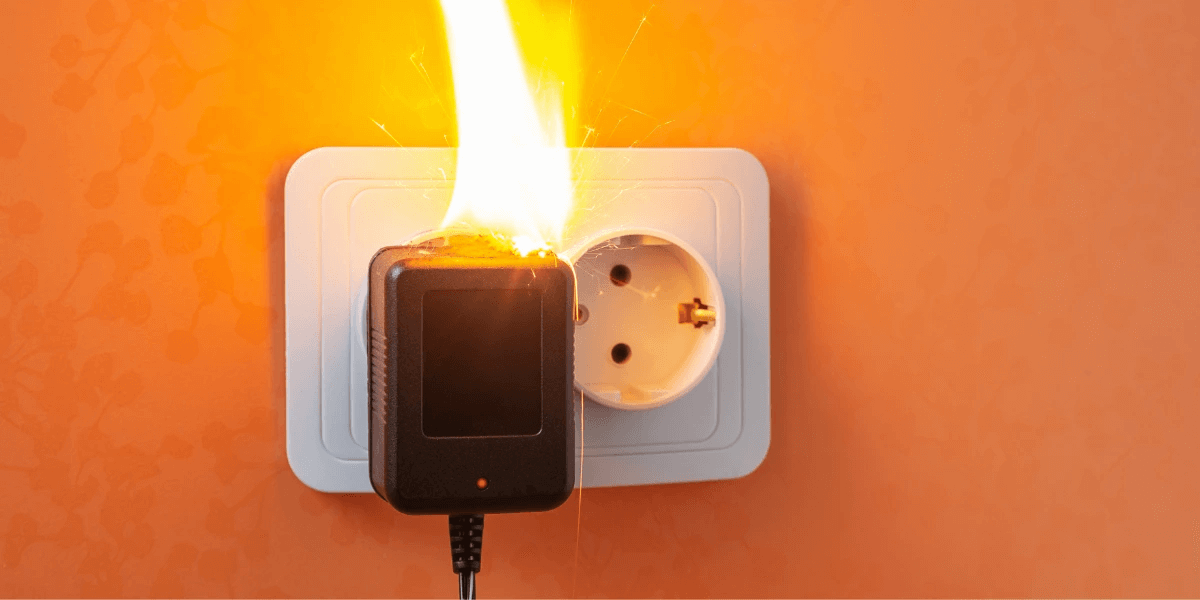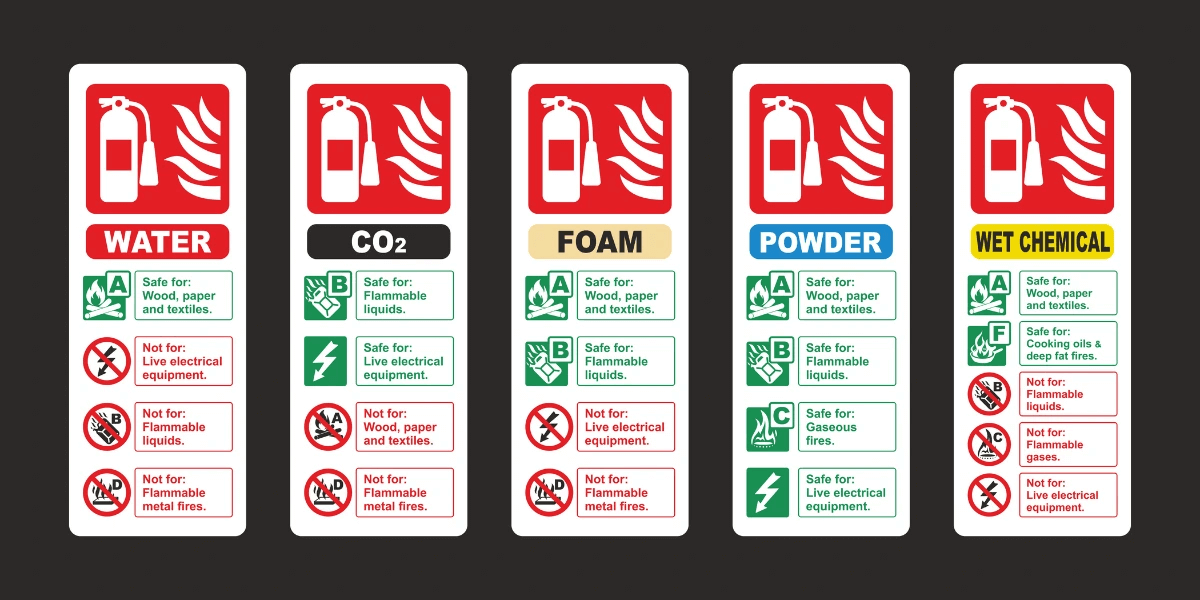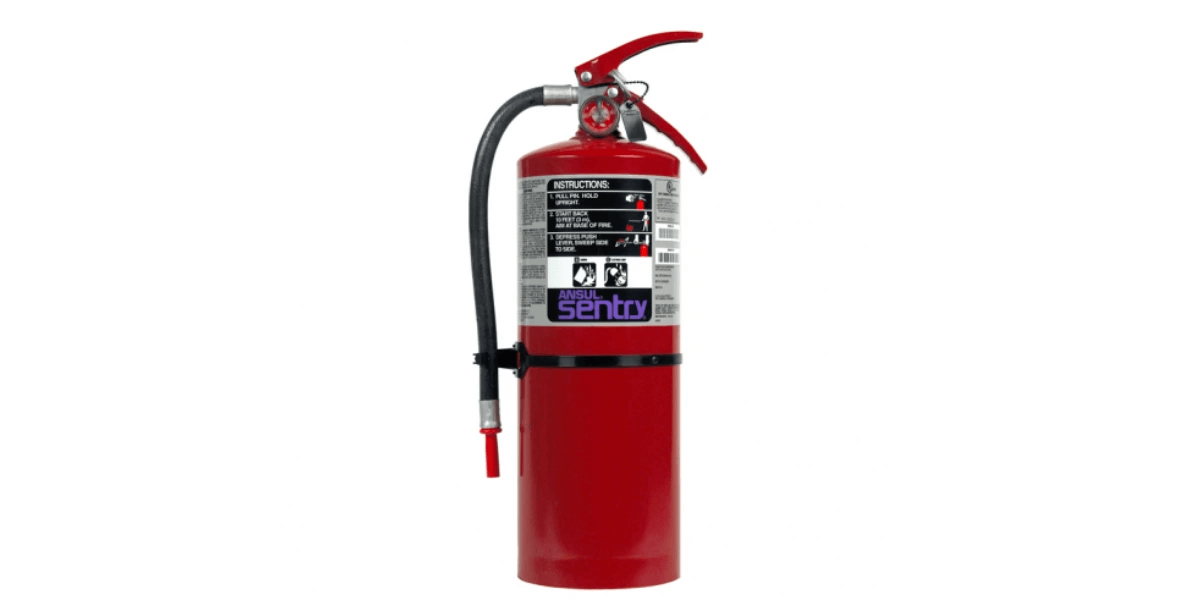What is an Electrical Fire Extinguisher? | State College, PA
Think about the last time you walked through your home or office. You probably saw dozens of electrical devices and appliances, right? They make our lives easier, keep us connected, and help our workplaces run smoothly. But with all these electrical gadgets comes a risk we can't ignore: electrical fires.
Now, dealing with electrical fires isn't the same as tackling a campfire gone rogue. You need a fire extinguisher made specifically for fires of this sort, or you risk making the fire even worse.
In this blog, we're going to unpack everything you need to know about electrical fire extinguishers. Fire safety might seem like a big topic, but we're here to make it a little less daunting and ensure you're ready for anything.
Let’s get started and keep our spaces safe and sound.
Key Takeaways
- Electrical fires require specific extinguishers, such as Class C, that use non-conductive agents to prevent electrical shock.
- Regular maintenance and proper use of electrical devices are crucial in preventing electrical fires.
- Knowing how to use the correct type of fire extinguisher can significantly enhance safety during an electrical fire emergency.
Let's First Talk About Electrical Fires

Electrical fires are the party crashers of our modern, gadget-filled lives. You find them starting trouble where you'd least expect it—in the hidden nooks behind walls, within the guts of our everyday appliances, and anywhere electricity flows a bit too freely. These fires can spring from faulty wiring, circuits crying out from overload, or appliances that are feeling a bit under the weather.
The danger with electrical fires isn't just in the flames. They bring a side of shock hazard to the table, making them a tricky opponent to tackle.
The water you'd throw on a regular fire? That's a big no-no here. Water conducts electricity, turning a well-meaning act into a potential electrocution scenario. Plus, electrical fires can spread with unbelievable speed, thanks to the network of wires in walls and ceilings.
Some common culprits behind electrical fires include:
- Faulty wiring: Ageing or improperly installed electrical wiring can overheat and spark a fire.
- Overloaded circuits: Plugging in too many devices can overwhelm circuits, leading to fires.
- Malfunctioning appliances: From toasters to tumble dryers, any appliance with a fault can become a fire hazard.
- Extension cords: Using extension cords as a permanent solution can cause overheating and fires.
- Portable space heaters: These cozy conveniences can turn dangerous if left too close to flammable materials.
Recognizing the early warning signs can be a game-changer in preventing an electrical fire from happening. Keep an eye out for:
- flickering lights
- buzzing sounds from outlets or appliances
- circuit breakers that trip frequently
- an acrid odor or a fish smell you can't pinpoint
Classifications of Fire Extinguishers

Now that we've learned more about electrical fires, it's time to talk about what stops them: fire extinguishers. Not all extinguishers are created equal, and understanding the distinctions is important in ensuring you're equipped with the right tools to combat these electrical intruders.
Fire extinguishers are categorized into classes based on the type of fire they're designed to combat. Each class is tailored to a specific kind of fuel, making the choice of extinguisher crucial for effectively dousing the flames.
- Class A extinguishers are meant for "ordinary" combustible materials like wood, paper, and cloth—stuff that leaves ash behind.
- Class B units tackle fires involving flammable liquids such as oil, gasoline, and paint.
- Class C extinguishers are your go-to for electrical fires. They are packed with non-conducive agents that can put out an electrical fire quickly without the risk of electrocution.
- Class D extinguishers are specialized for combustible metals like magnesium and sodium.
- Class K extinguishers are designed for kitchen fires, particularly those involving cooking oils and fats.
Zooming In on Class C Fire Extinguishers

Class C fire extinguishers are the unsung heroes when an electrical blaze rears its ugly head. Unlike their Class A and B counterparts, these extinguishers use non-conductive materials to safely quench fires without adding to the danger.
Why Class C? Electricity and water don't mix—if you throw water on an electrical fire, it can lead to a shocking escalation. A Class C fire extinguisher bypasses this issue with agents like carbon dioxide (CO2) and dry chemicals that don't conduct electricity, allowing you to safely extinguish the flames.
How they work
CO2 extinguishers suffocate the fire by displacing oxygen, while dry chemical extinguishers break the chemical reaction that feeds the fire. Both methods prevent the fire from spreading without risking electrocution.
Beyond Class C
While Class C extinguishers are essential for electrical fires, it's smart to have an ABC fire extinguisher on hand as well. These versatile units can tackle Class A, B, and C fires, making them a great all-around choice for general fire preparedness.
Pro Tips
- Know your extinguisher: Familiarize yourself with the types of extinguishers available in your space. Not just any extinguisher will do when it comes to electrical fires.
- Regular checks: Ensure your extinguishers are in working order with regular inspections. A malfunctioning extinguisher is of no use in an emergency.
- Safety first: Always prioritize safety. If a fire is too large or you're unsure of how to use an extinguisher, evacuate and call professional firefighters.
Prevention: The First Line of Defense Against an Electrical Fire

While equipping yourself with the right type of fire extinguisher is a crucial step in fire safety, the best fires are the ones that never start. Understanding and implementing electrical fire prevention measures can significantly reduce the risk of an unwanted blaze in your home or workplace.
Here are a few essential tips for preventing electrical fires and ensuring your environment remains safe and sound:
- Inspect electrical cords and appliances regularly: Keep an eye out for frayed wires, damaged cords, and malfunctioning appliances. These are not just minor inconveniences but potential fire starters. If something doesn't look right, replace it before it becomes a problem.
- Don't overload circuits: Plugging too many devices into a single outlet can overload circuits and lead to fires. Use power strips wisely and ensure your electrical system is up to the task of supporting your needs.
- Maintain your electrical system: Outdated wiring and overloaded circuits are a recipe for disaster. Have a professional electrician inspect your system, especially if you live in an older home or building, to ensure everything is up to code and capable of handling your electrical load.
- Use appliances wisely: Follow the manufacturer's instructions for all electrical devices and never leave them running unattended. Also, be mindful of placing heat-generating appliances away from flammable materials.
- Install smoke detectors: Working smoke detectors can be the early warning you need to prevent a fire from spreading. Ensure you have them installed on every level of your home or office and test them regularly.
By staying vigilant and following these prevention tips, you can drastically reduce the chances of an electrical fire in your space. Remember, safety starts with awareness and prevention. Keep these practices in mind, and let's work together to create safer, fire-resistant environments.
Now that you're armed with knowledge about electrical fires, the right extinguishers to combat them, and prevention tips, you're well-equipped to protect yourself and your space from potential fire hazards.
However, should you ever find yourself in need of expert advice, products, or training, Swartz Fire & Safety is here to empower you with everything you need to stay safe.
Stay Charged: Swartz Fire & Safety's Guide to Electrical Fire Extinguishers
Electrical fires: they're stealthy, swift, and can shock you with their ferocity. But with Swartz Fire & Safety by your side, you're equipped to handle the heat without getting burned.
We're not just about extinguishing flames; we're about powering up your fire safety to the max. And when it comes to electrical fires, you don't want just any fire fighter. You want the right one.
Swartz Fire & Safety shines a light on the shadowy corners where electrical fires lurk, offering top-tier Class C fire extinguishers, installation, inspection, and servicing to ensure you're never left in the dark.
Don't wait for the sparks to fly. Get proactive about your fire safety. Contact us today and let Swartz Fire & Safety equip you with the knowledge, tools, and confidence to tackle electrical fires head-on. Because when it comes to safety, we believe in keeping both your power on and your risks off.
Frequently Asked Questions
What fire extinguisher is used for electrical fire?
For electrical fires, Class C fire extinguishers are the most suitable as they contain non-conductive substances. Carbon dioxide (CO2) and dry chemical extinguishers are commonly used for these types of fires.
What are Class C fire extinguishers used for?
Class C fire extinguishers are specifically designed for electrical fires involving energized electrical equipment. They use non-conductive extinguishing agents to safely put out the fire without risking electrical shock.
Why is a CO2 extinguisher used for electrical fires?
CO2 extinguishers are used for electrical fires because CO2 is a non-conductive gas that effectively displaces oxygen, extinguishing the fire without creating a risk of electrocution or damaging sensitive electrical equipment.
What extinguisher agent for electrical fire?
Non-conductive extinguishing agents like carbon dioxide (CO2) and dry chemical powder are used for electrical fires. These agents help to safely extinguish the fire without conducting electricity.


